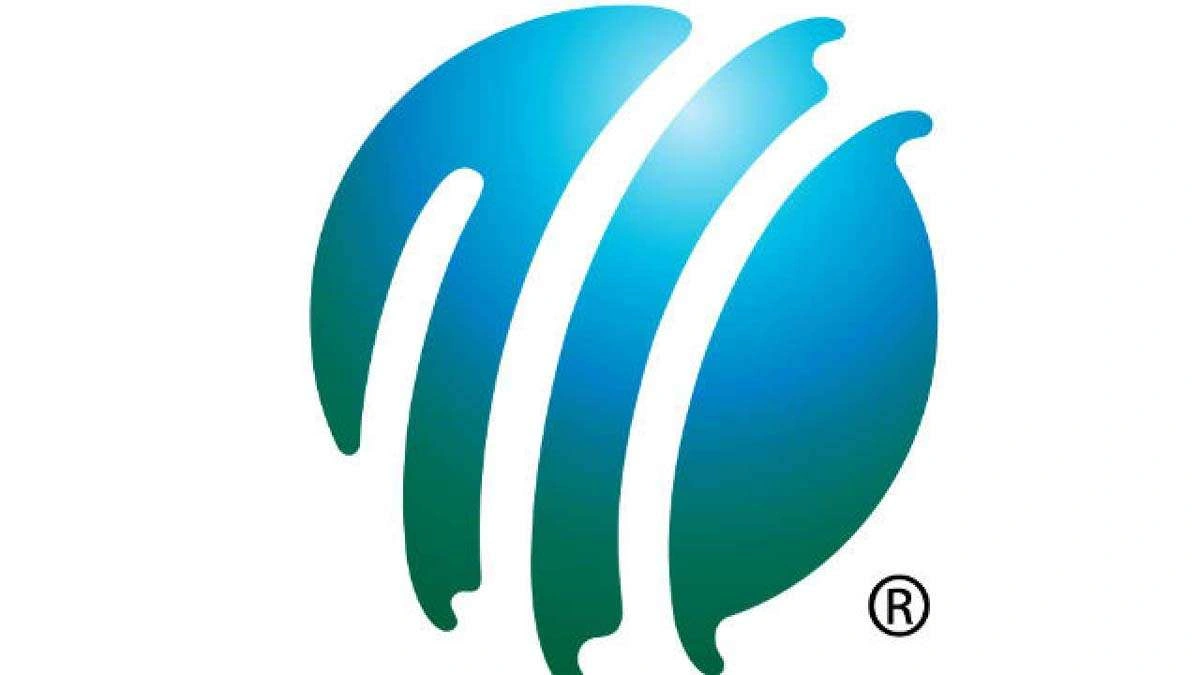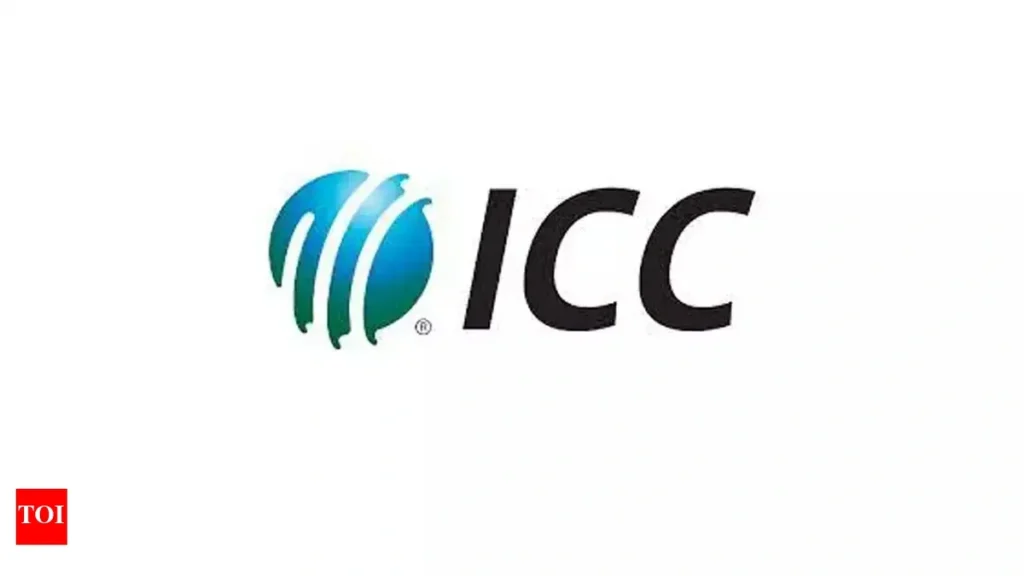Chris Broad, a name synonymous with insightful cricket commentary, has stirred the pot, hasn’t he? The former England international and current match referee has voiced concerns about potential biases within the ICC , specifically suggesting a leaning towards India. Now, before we jump to conclusions and start a Twitter war, let’s unpack this. What makes Broad’s statement so significant? Is there any truth to it, or is it merely a disgruntled opinion? And, most importantly, what does this all mean for the future of cricket?
The “Why” Behind the Accusation | Unveiling the Implications

Here’s the thing: Broad’s accusation isn’t just about a single decision or a perceived favoritism in one match. It’s about the potential erosion of trust in the game’s governing body. The ICC, after all, is supposed to be the impartial guardian of cricket’s integrity, ensuring fair play and equal opportunities for all nations. So , when a figure as respected as Broad raises questions about its impartiality, it demands attention.
But why India, specifically? Well, let’s be honest, India is a cricketing powerhouse. It holds immense financial sway, its fan base is unparalleled, and its influence on the global cricketing landscape is undeniable. The Board of Control for Cricket in India (BCCI) wields considerable power within the ICC, and this influence naturally leads to scrutiny. Are decisions being made in the best interests of the game, or are they influenced by India’s economic might? That’s the question Broad’s comments implicitly raise.
The implications are far-reaching. If smaller cricketing nations perceive bias, they may become disillusioned, hindering the growth and development of the sport in those regions. This could lead to a concentration of power and resources in the hands of a few, ultimately undermining the spirit of global competition that cricket should embody.
Decoding the Nuances | What Does “Favoritism” Even Mean?
Now, let’s delve deeper into what Broad might actually mean by “favoritism.” It’s unlikely he’s suggesting outright corruption or blatant manipulation. More subtly, it could refer to a range of factors:
- Scheduling: Is India consistently given preferential treatment when it comes to scheduling tours and tournaments, maximizing their home advantage?
- Umpiring Decisions: Are there subtle biases in umpiring decisions that tend to favor India, particularly in close calls or marginal situations?
- Disciplinary Actions: Are Indian players treated more leniently than players from other nations when it comes to disciplinary actions or code of conduct violations?
These are just a few examples, and proving any of them definitively is incredibly difficult. But the perception of bias, whether real or imagined, can be just as damaging as actual bias. It breeds resentment, fuels conspiracy theories, and ultimately undermines the credibility of the game.
The Financial Angle: Following the Money Trail in ICC Cricket
What fascinates me is how much of this boils down to money. The ICC’s revenue model is heavily dependent on India’s participation and success. Major tournaments featuring India generate massive viewership and sponsorship dollars, which in turn fund the ICC’s operations and distribute revenue to its member nations. This creates an inherent conflict of interest. The ICC is incentivized to keep India happy and successful, even if it means bending over backward on occasion. This is true with most international cricket bodies and organizations.
Think about it. If India were to boycott an ICC event, the financial repercussions would be devastating. The ICC would lose a significant portion of its revenue, and many smaller nations that rely on ICC funding would suffer as a result. This financial reality inevitably shapes the power dynamics within the ICC and influences decision-making processes.
And, while cricket news keeps the fans updated, it often fails to delve into these critical financial aspects.
The Perspective of a Cricket Fan in India | A Balancing Act
Let me rephrase that for clarity… As an Indian, it’s easy to dismiss Broad’s comments as sour grapes or anti-India bias. After all, we’re fiercely proud of our team and our cricketing heritage. But, dismissing these concerns outright would be a mistake. It’s crucial to acknowledge the potential for bias, even unintentional, and to hold the ICC accountable for ensuring fair play for all.
We, as Indian cricket fans, have a responsibility to demand transparency and integrity from our own board and the ICC. We shouldn’t be content with simply winning; we should strive to win fairly, knowing that our success is earned through skill, dedication, and sportsmanship, not through undue influence or preferential treatment. This perspective is vital for the continued health and reputation of Indian cricket.
It’s also important to remember that criticism, even when it stings, can be constructive. Broad’s comments, while potentially controversial, can serve as a wake-up call for the ICC to examine its own practices and ensure that it is truly acting in the best interests of the game. A common mistake I see people make is to ignore the warnings.
The Road Ahead | Ensuring Fairness and Transparency
So, what can be done to address these concerns? Here are a few suggestions:
- Independent Oversight: Establish an independent body to oversee the ICC’s decision-making processes and ensure that they are free from bias or undue influence.
- Financial Transparency: Increase transparency in the ICC’s financial dealings, disclosing the sources of its revenue and how it is distributed among member nations.
- Code of Conduct Enforcement: Enforce the ICC’s code of conduct consistently and fairly, regardless of the nationality of the player involved.
- Promote Competitive Balance: Invest in the development of cricket in smaller nations to promote greater competitive balance and reduce the dominance of a few powerful teams.
These are just a few ideas, and the solutions are likely to be complex and multifaceted. But the key is to acknowledge the problem and commit to finding solutions that will ensure a level playing field for all. The future of international cricket depends on it.
Ultimately, Chris Broad’s claim should serve as a catalyst for a broader conversation about the governance of cricket. It’s a chance to re-evaluate the power dynamics within the ICC, to address potential biases, and to reaffirm our commitment to the principles of fairness, transparency, and integrity. Only then can we ensure that cricket remains a truly global sport, enjoyed and respected by all.
FAQ
What exactly did Chris Broad say?
Chris Broad voiced concerns about potential biases within the ICC, suggesting a leaning towards India due to their financial influence.
Why is India’s role in the ICC so significant?
India holds immense financial sway in cricket, influencing the ICC’s revenue and decision-making processes.
How can the ICC address concerns about favoritism?
Solutions include independent oversight, financial transparency, and consistent code of conduct enforcement.
What can fans do to promote fairness in cricket?
Demand transparency from the ICC and support initiatives that promote competitive balance and fairness.
Is there any actual proof that ICC favors India?
There’s no definitive proof, but the perception of bias exists due to financial incentives and power dynamics.
Where can I find more cricket news updates?
You can find more cricket news on various sports websites and news channels.

I’m Vishal Ojha, a passionate blogger, content writer, and web designer with over four years of experience. I have a deep love for sports, especially cricket, and enjoy sharing the latest updates, insights, and analyses from the world of athletics. Every article I publish is carefully researched and fact-checked, ensuring readers get accurate and engaging sports content they can trust.



